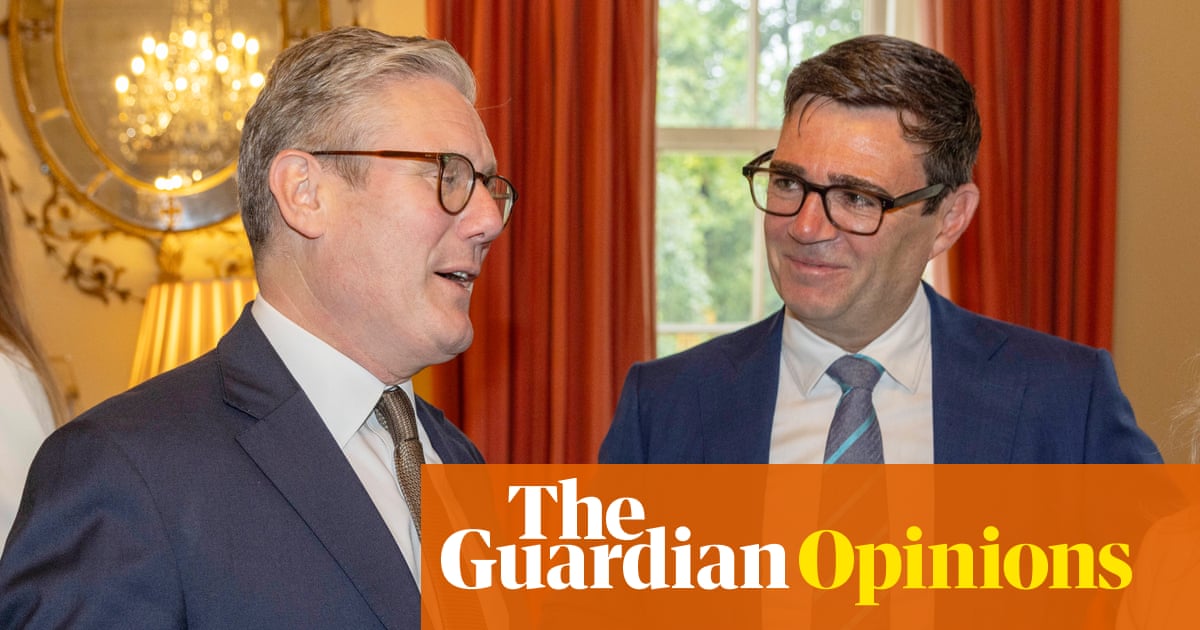Right now – as presidential planes touch down in New York City for the UN general assembly – a fleet of civilian vessels is sailing to Gaza: the largest convoy in history to traverse the Mediterranean Sea with a mission to establish a humanitarian corridor to reach the starving people of Palestine.
I am a member of that mission. Since the first batch of boats departed from Barcelona, I have been assigned to Family, the lead vessel of the fleet: a humble motor-cruiser carrying doctors and lawyers, journalists and parliamentarians, students and sea rescue workers from 10 countries across the world.
All together, this “Global Sumud Flotilla” carries hundreds of participants from more than 40 national delegations, united by their shared conviction that something must be done to halt the destruction of Gaza – and that if governments refuse to do it, then ordinary people will.
Last week, legal experts from an independent UN commission declared that Israel has committed genocide in the Gaza Strip. “It is clear that there is an intent to destroy the Palestinians in Gaza through acts that meet the criteria set forth in the Genocide Convention,” they concluded.
For the participants of this flotilla – as for so many millions of people across the world – the UN declaration comes as no surprise. In the two years since the attacks of 7 October, we have scrolled through countless images of senseless slaughter and felt powerless to stop it.
That power, according to international law, resides in the states that represent us. Last year, the UN general assembly overwhelmingly adopted Resolution ES‑10/24, which established the obligations of all member-states to take immediate action to defend the fundamental rights of the Palestinian people.
Yet one year later – days after the deadline established by that Resolution – those same member-states continue to arm, aid, and abet the state of Israel in its expanding campaign of destruction, eviction, and annexation of the occupied Palestinian territories.
That is why so many millions of ordinary people are taking to the streets, from New York to London and beyond: to exhort their representatives to listen to the conscience of their constituents and respond to Gaza’s humanitarian crisis with the urgency it requires.
That movement is growing. This week, ports, trains and highways across Italy were shut down with a single message of solidarity: Blocchiamo Tutto, we will block everything until the government of Giorgia Meloni breaks commercial, military and diplomatic ties with the state of Israel.
The sustained inaction of the international community has also forced us to take action at sea. We are not the first ones to do so. Since 2008, the Freedom Flotilla Coalition has deployed scores of civilian vessels carrying tons of humanitarian aid to Gaza.
In some cases – such as the Mavi Marmara – Israel has responded with lethal force, raiding the boat and killing nine activists on board; a 10th died from injuries in the hours that followed. In others – such as the more recent Madleen – Israel has ridiculed the effort as a mere “selfie cruise” to indulge the celebrity of its participants.
Our present voyage, however, is unprecedented – a fleet of 40 boats, larger than the sum of all previous missions. Such a large-scale humanitarian effort has forced the state of Israel to choose between these two incompatible narratives: are we simply pleasure cruising across the Mediterranean? Or do we represent an imminent threat to their national security?
In recent days, the decision by the government of Benjamin Netanyahu has been made clear. Our convoy is now described as the “Hamas Flotilla”, with the state of Israel insinuating that the flotilla maintains links to “organized terror” and threatening to “stop” our flotilla by any means necessary – a clear and flagrant violation of international humanitarian law.
I can see the fear on the faces of my fellow boatmates. Each day, we conduct drills to practice non-violent protocols in case of our interception. And each night, we take shifts monitoring the skies for drones that fly overhead with increasing frequency as our journey progresses.
These protocols are not mere performance. Back in the Tunisian port of Sidi Bou Said, drones targeted our vessels in two successive midnight attacks, deploying explosive devices onto the decks of the Family and the Alma respectively. In the investigation that followed, Tunisian authorities described the attacks as “premeditated aggression” against the flotilla.
But the defamatory narrative of a “Hamas Flotilla” – motivated by antisemitism, rather than humanism; directed by “terrorists”, rather than ordinary citizens – also risks running into the absurd.
Here on the Family, I am joined by Ada Colau, former mayor of Barcelona and mother of two young children. I am joined by Bianca Webb-Pullman, a practicing family medic who traveled all the way from Australia. And I am joined by Adèle Haenel, a French actor who enjoys beating me in chess whenever we have a free moment on board.
My personal identity presents a particular problem for this narrative. Coming from a Jewish family in the United States, I joined the humanitarian mission for the same reason that so many Jews in the US are speaking out about the assault on Gaza: to reclaim my identity – my heritage, our traditions, its symbols – from the nation-state that seeks to monopolize them.
Governments across the world are beginning to speak out about the threats issued against our flotilla. Last week, 16 states – including Spain and Slovenia, Brazil and Mexico – issued a joint statement warning: “Any violation of international law and human rights of the participants in the Flotilla, including attacks against the vessels in international waters or illegal detention, will lead to accountability.”
From the flotilla, we have welcomed this important recognition of our humanitarian intentions and rights under international law – while wondering why so many governments with citizens on board, such as France and the United States, refused to sign it.
Yet the statement confuses means for ends. This flotilla is but a means to establish a nautical humanitarian corridor, where the state of Israel has blocked aid entry points on land. Any state that is serious about the humanitarian crisis in Gaza should not simply offer protection to our civilian fleet, but join us, deploying vessels at the scale that corresponds to the severity of Gaza’s present suffering.
Donald Trump has made a mockery of international law with the establishment of the so-called “Gaza Humanitarian Foundation”, which – far from delivering on its stated mission – has deployed cruel, inhumane and often lethal methods for the distribution of paltry aid.
But it should not fall on the shoulders of ordinary people to rescue international law from ruin. Only states – gathered together now at the United Nations – can apply the necessary measures to halt the destruction of Gaza and protect the lives and livelihoods of its people.
For now, we are preparing to complete our mission in the coming days. At the time of writing, it is not too late for states to step up and join our mission, sailing alongside us through the Mediterranean Sea. But even in their absence, we will sail on, undeterred the threats issued against us. Gaza cannot wait.
-
David Adler is co-general coordinator of Progressive International

 3 months ago
101
3 months ago
101

















































